15 Best Personal Finance Books to Boost Your Financial Knowledge

These are some of the best personal finance books related to money, finances, entrepreneurship, and investing that have helped me get on the right path. I have no doubt they can do the same for you.
To be good at anything, you have to be willing to learn and read, which is exactly how it works with better understanding money and your personal finances.
I credit a lot of my current knowledge and financial situation to reading some of the below personal finance books.
Without the author’s guidance and unique knowledge, I may not have been as quickly prepared or may have never improved my financial well-being.
Of course, there is no guarantee you’ll get rich overnight or even in the next few years, but it will inevitably set you up for financial freedom.
I have a pretty busy schedule, but I always found time each week to dedicate to reading.
Below are the best personal finance books that set me on the right path and some newer ones that helped me adjust further.
Best Personal Finance Books for Beginners
While I would recommend all these books on my list to beginners, some of the below will be a bit more difficult to grasp at first. Instead, I separated a few personal finance books for beginners first.
You should consider these absolute ones starting with very little knowledge about money, budgeting, debt, or investing. Let’s dive in below.
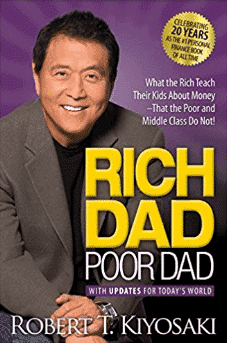
1. Rich Dad Poor Dad: What the Rich Teach Their Kids About Money That the Poor and Middle Class Do Not!
This was one of the first books about money and finances that I ever truly read. It’s also the one I read over 1-2x times per year. The book is pretty short and a fairly easy read, but it was the first book that really opened my eyes to how I look at money.
Rich Dad, Poor Dad, was written by Robert T. Kiyosaki over 20 years ago and has sold millions of copies and been translated into dozens of languages. The book explores the myth that you need to be a high-income earner to be rich and explains how to have your money work for you.
It’s also the first time I heard about the “pay yourself first” mindset and was key in helping me invest money while tackling personal debt.
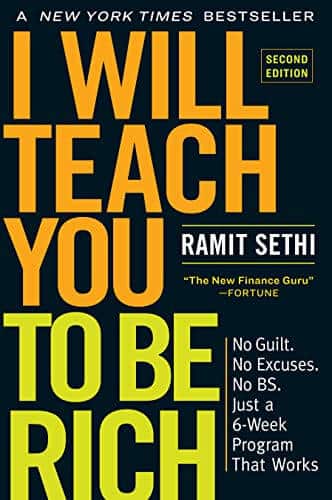
2. I Will Teach You to Be Rich
One of the go-to books for any personal finance or investing beginner should be Ramit Sethi’s I Will Teach You to Be Rich.
Despite the title sounding like it could be scammy, it’s absolutely not and offers some of the best breakdowns on finances in any book I have read.
The book was originally released over ten years ago, but more recently got an update with some new information.
Sethi covers everything from tackling debt, choosing the right banks, setting your accounts up for success, how to invest, negotiating salary, and much more.
Personally, this should be in everyone’s home and on their reading list. I found myself laughing a few times at how he calls certain areas of finances out. Great read.
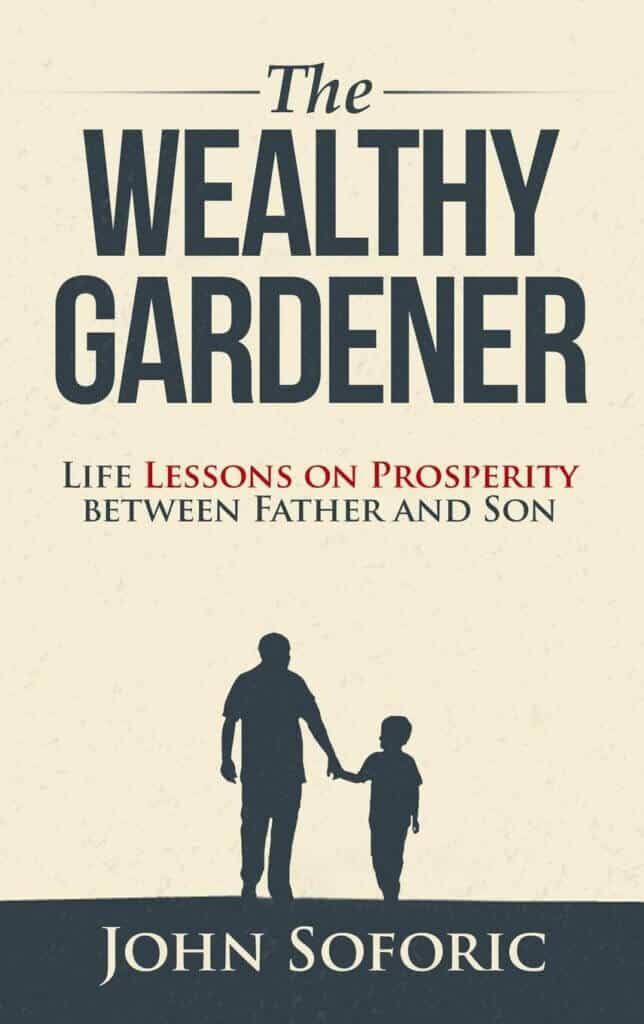
2. The Wealthy Gardener
I was fortunate enough to receive a free copy of The Wealthy Gardener from author John Soforic a few months back. I’m always very appreciative of offers like this, and naturally, I had to read this.
While I wasn’t sure what to expect, I found myself eager to read further after each chapter.
This book follows the story of the author’s finances, as a business owner, and eventually reaching financial freedom in his early 50s. The book is dedicated to his college-aged son to help him understand what it means to be successful and prosperous in life.
What is cool about this book is it doesn’t follow the traditional style of financial non-fiction. It tells the story of a wealthy garden who shares his wisdom and insights on life. Then that fictional story ties into the less of the really like of the author.
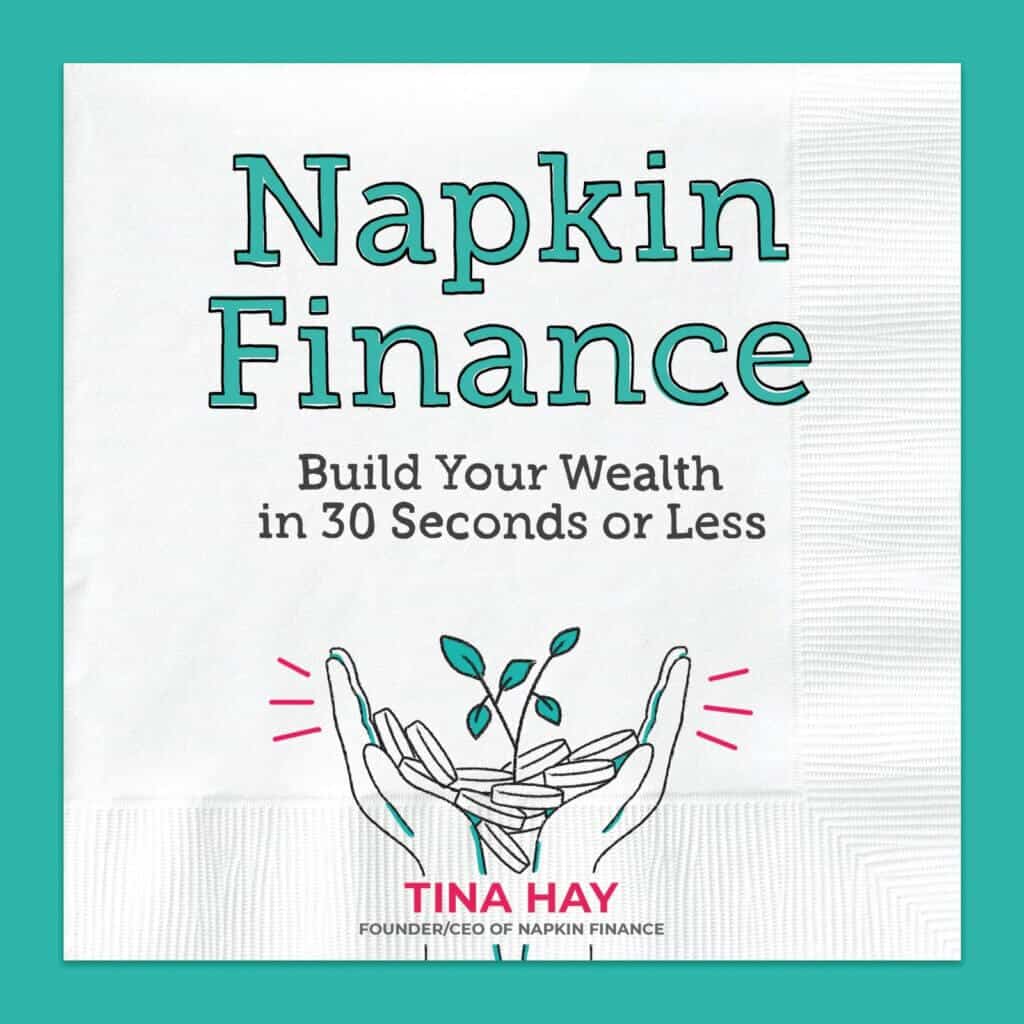
3. Napkin Finance
Another book that I received a copy of from the publisher was Napkin Finance by Tina Hay. I love this book’s idea coming from drawing ideas on napkins, which then became this awesomely illustrated book.
Sometimes, a huge book with just words is not enough for financial concepts to stick for many people. Totally common, and you should not feel bad or get frustrated if this is you. Instead, you can turn to the book Napkin Finance!
Tina Hay built Napkin Finance to be a simple visual learning tool with learning modules to help you grasp every finance topic imaginable.
We are talking budgeting, investing, debt, student loans, and other complex areas of finance. She makes it more interesting and engaging, so finances do not have to be boring.
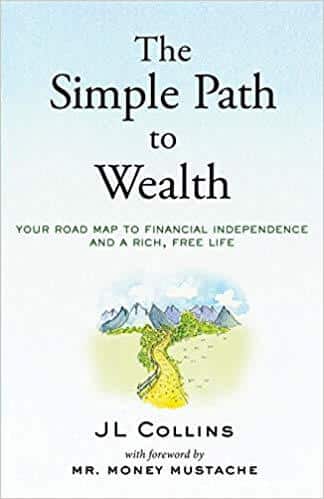
4. The Simple Path to Wealth
If you have come across financial blogs or websites, a common personal finance book that is often referenced is The Simple Path to Wealth by JL Collins.
According to the author, “This book grew out of a series of letters to my daughter concerning various things—mostly about money and investing—she was not yet quite ready to hear.”
It is funny how a few books on the list were sparked from real-life conversations, but those tend to make the best lessons and reads! But Collins took many complex ideas around investing and finances and broke them down into simpler terms.
The Simple Path to Wealth covers a TON! I’m talking about debt, how to think about money, investing advice, how the stock market works, investment strategies, avoiding being scammed, social security, and much more.
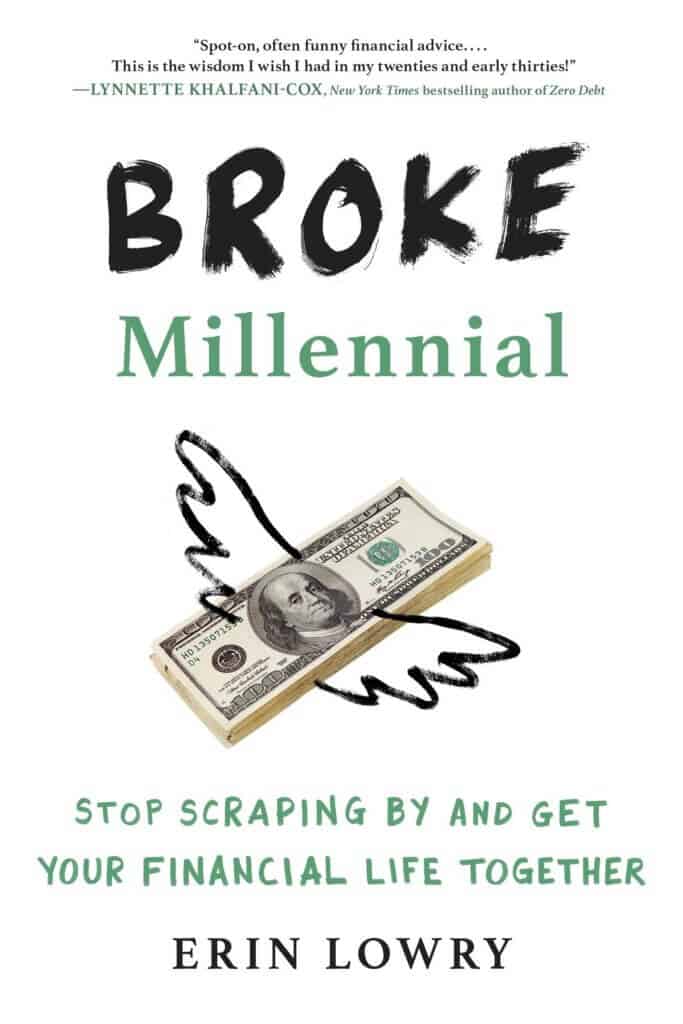
5. Broke Millennial
While many of these personal finance books are for any demographic, Broke Millennial by Erin Lowry focuses more on the millennial generation.
Of course, there are still great lessons and insights for other age groups, but I wanted to include this note.
I like Broke Millennial because it focuses on helping you go from paycheck to paycheck or broke to being more financially secure and independent.
With the student loan crisis and inflation issues plaguing the United States, many millennials feel doomed or stuck to be broke forever.
Erin Lowry focuses on simplifying money, getting out of your financial funk, and including personal stories of her own to help you become a money master.
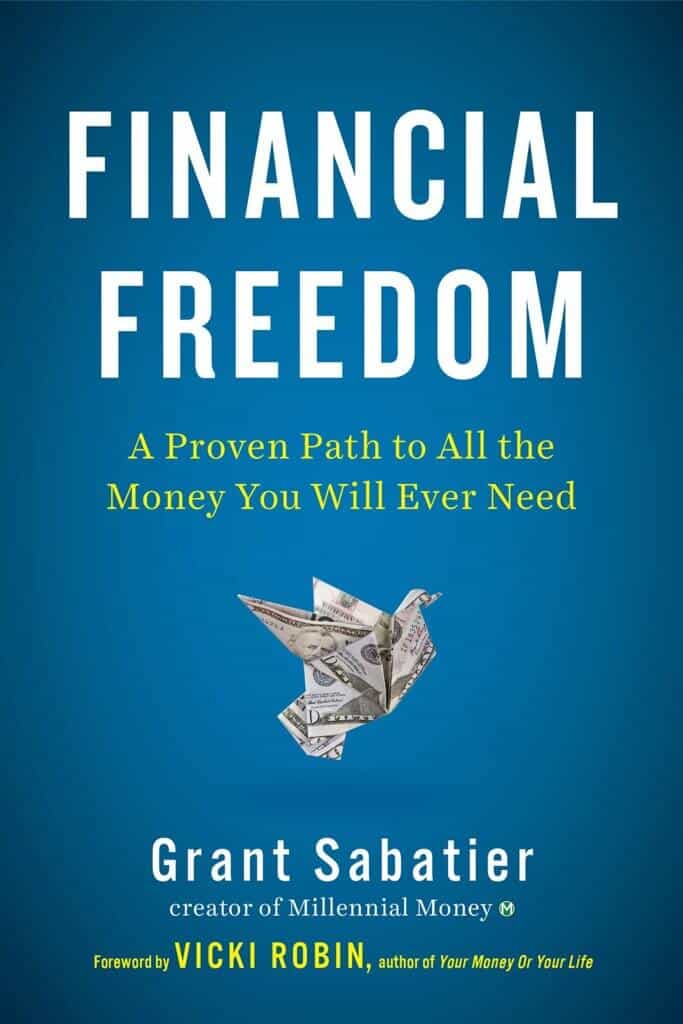
6. Financial Freedom: A Proven Path to All the Money You Will Ever Need
While many of these books focus on similar topics, Financial Freedom by Grant Sabatier takes that and spins it a bit more on the financial independence aspect.
You may be familiar with Grant’s story from his website Millennial Money; he was one of the first blogs I really started reading when I wanted to fix my own finances.
Since then, Grant has become an author, and his first book Financial Freedom does not disappoint.
It’s certainly geared towards the younger crowd like Broke Millennial, but there are tons of great principles and simple breakdowns about money and achieving financial independence.
Personal Finance Books About Money, Investing, Debt
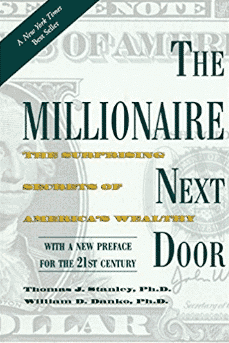
7. The Millionaire Next Door: The Surprising Secrets of America’s Wealthy
Have you ever met someone or know someone in your family who never appeared to be wealthy? But at some point, you find out they are financially free or have a ridiculous amount of money saved?
That’s what The Millionaire Next Door explores, the people you least expect to be millionaires and how they got there by living below their means.
The fact is, most people who are wealthy can be your neighbor in a modest suburban neighborhood. The book explores this and the common characteristics of those who obtained wealth.
Another one of my favorite personal finance books, and it’s quite an easy read. But just like Rich Dad, Poor Dad, there is a lot of knowledge and perspective you’ll come away with.

8. Your Money or Your Life
If you are already pretty connected to the personal finance community, then you are probably familiar with Vicki Robin and Joe Dominguez’s masterpiece.
Your Money or Your Life has been around for over twenty years but has continued to be an essential read to understanding money and personal finance.
This was a great eye-opening read and is a must for anyone interested in taking back your life by changing your relationship with money.
It helped me rethink everything I know about money, building wealth, and habits to obtain a better life. The book also has gotten some recent updates and new content, so highly worth checking out an updated edition.
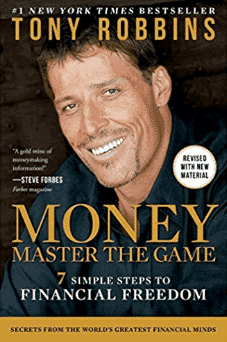
9. MONEY Master the Game: 7 Simple Steps to Financial Freedom
When it comes to Tony Robbins, I will say I don’t buy into everything he puts out there. I was thoroughly impressed with his 2016 book, MONEY Master the Game: 7 Simple Steps to Financial Freedom.
This book is for investing and personal finance beginners, to even those who have solid knowledge. It’s a thick book, but easy to read and simple to understand.
Robbins did his homework on this one with interviews with the most legendary investors at work today (John Bogle, Warren Buffett, Paul Tudor Jones, Ray Dalio, Carl Icahn, and many others). And his 7-step blueprint for securing financial freedom.
I learned quite a bit more about investing money, and it even helped my portfolio increase in returns in the last two years since reading. Also, Tony Robbins wrote a follow-up called Unshakeable: Your Financial Freedom Playbook, which is also quite good and may interest you.
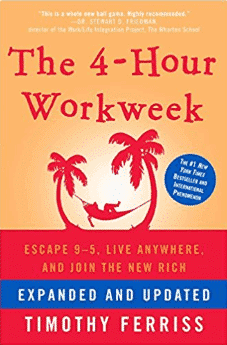
10. The 4-Hour Work Week
Another one you might recognize and also not all necessarily about personal finance. However, this was the second book I read when I had just started getting into personal finance.
The 4-Hour Work Week by New York Times Bestseller Tim Ferris covers how to escape the rat race, experiencing high-end world travel, and how earning a monthly five-figure income with zero management is possible.
This book also talks about Ferris’s personal life changes to achieve that status, and this updated version includes A LOT of new material and case studies.
I will note some things that I didn’t necessarily agree with within this book, but it opened my eyes to a lot more opportunities and how to live a better life. I think the key to truly getting in the right money mindset is to read books like The 4-Hour Work Week, regardless if you agree with everything.
11. The Bogleheads’ Guide to Investing
Interesting title, right? So what does it mean? Well, this is the DIY handbook that espouses the investment wisdom of John C. Bogle, the founder of Vanguard.
I use Vanguard heavily and always recommend friends who are interested in investing to choose this platform. Mind you, there are some other decent ones out there that have low fees and great funds, but Vanguard has always been my preference.
When I got started investing, and with Vanguard, I wanted to learn more about the best funds to invest in.
And I also wanted something to keep my interest, because reading about investing sometimes is not the most exciting stuff. But The Bogleheads’ Guide to Investing kept my attention and helped me build a solid Vanguard portfolio.
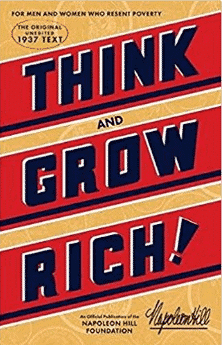
12. Think and Grow Rich
Confession time, I have not read this classic yet….so why is it on the list? Well, anyone who I have ever talked to about finances, business, or entrepreneurship has at some point mentioned this book.
I’ve been slacking on reading this but based on the feedback I’ve gotten about it; this is a must in your personal finance collection.
In Think and Grow Rich, author Napoleon Hill draws on Andrew Carnegie’s stories, Thomas Edison, Henry Ford, and other millionaires of his generation to illustrate his principles.
This book will show you not only what to do to build wealth but how to do it. Once you learn and apply the basic techniques, you will have mastered the secret of true and lasting success.
I’m excited to give this one a read.
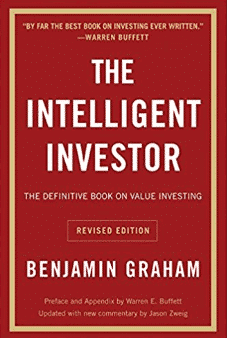
13. The Intelligent Investor: The Definitive Book on Value Investing. A Book of Practical Counsel
The Intelligent Investor is another big book, but if you are interested in individual stock investing, then this a must-add to your collection. It’s also the essential personal finance book that teaches you all of the fundamentals of stocks.
The main premise is that if you are investing in an individual stock, you are buying a piece of the company and investing for the long haul. This is not a get-rich-quick or stock-flipping book.
As I’ve mentioned in other blog posts, I don’t think most people should be investing in individual stocks. You are exposed to more risk and should really read up (like this book) before considering getting started.
I personally only invest 1% of my total available cash in individual stocks and still don’t that often. Sometimes it is nice to dabble a bit, but I’d stick to index funds that get you great exposure and diversification with less risk.
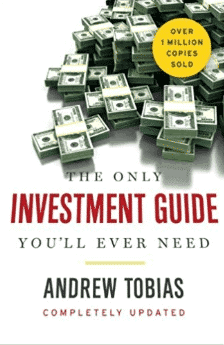
14. The Only Investment Guide You’ll Ever Need
The Only Investment Guide You’ll Ever Need is one of my favorites on this personal finance book’s list. So much so that I’ve read it twice and now going on three times. Not only because I liked it, but there is so much solid information that it is easy to miss or forget.
This book has also been around for nearly forty years! Yet, it gets updated every so often, and the information still holds valuable after all these years. I found this book pretty easy to read and will definitely help your money make money.
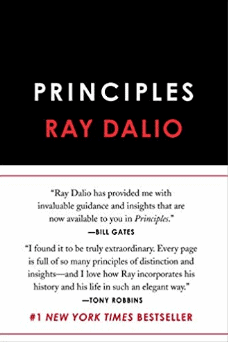
15. Principles: Life and Work
Another book I recently read is by famed investor Ray Dalio called Principles: Life and Work. This is a MONSTER of a book and, at times, can be a bit difficult to read, but the insight is solid.
Dalio shares what he’s learned over the course of his incredible investing career and running an investment firm. He argues that life, management, economics, and investing can all be systemized into rules.
Whether you are interested in investing, entrepreneurship, or starting a business, I think there is tons of value in this book.
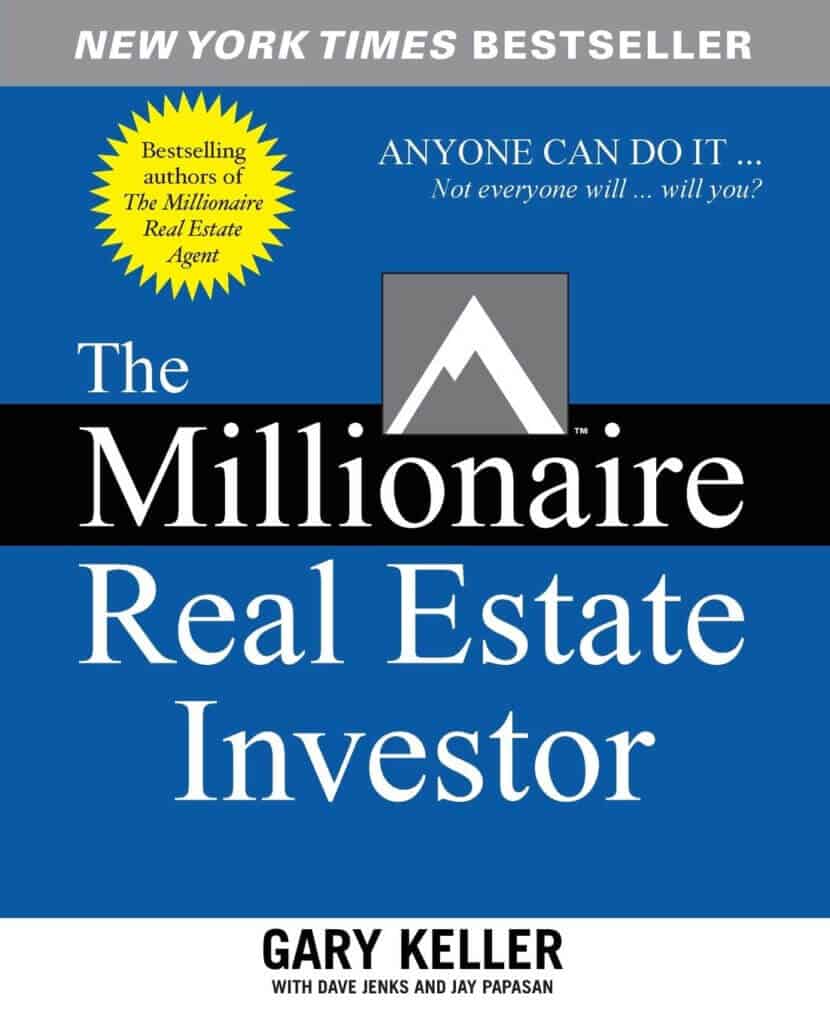
Bonus: Millionaire Real Estate Investor
As you grow your finances and further develop an interest in investing money, real estate might interest you further.
While you can get started in real estate investing with little money, you might want to build wealth by buying real property.
The Millionaire Real Estate Investor is the godfather of everything you need to know.
This article is originally on Invested Wallet.






